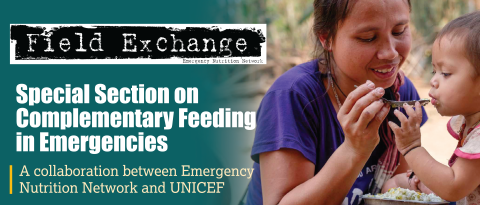A decision-making tool for the use of simplified approaches in exceptional circumstances
Approximately 13.6 million children under five years of age suffer from severe wasting globally with cases continuing to rise in areas affected by conflict and climate shocks, precisely where the risk of child mortality is already highest. While treatment services are now available in over 75 countries, only a third of all children will receive treatment due to limited access and coverage. Further compounding the situation are several impending food crises in regions already affected by child wasting and the fact that the cost of ready-to-use therapeutic food is projected to increase by up to 16% over the six months from May 2022 (UNICEF, 2022), potentially reducing access to this life-saving treatment.
To support implementers in adapting wasting treatment services to ensure both continuity and availability, the Global Simplified Approaches Working Group has developed a decision-making tool for use in exceptional circumstances – defined as complex and/or challenging contexts resulting in negative effects on treatment services or the target population, such as health system closure/collapse or a break within the food pipeline. Aimed at national level implementers – including Ministry of Health workers, United Nations (UN) and other non-governmental organisation staff – this tool seeks to facilitate the decision-making process as to which modifications to implement based on the context. This new Decision Making Tool for the use of Simplified Approaches in Exceptional Circumstances includes a Briefing Paper (Simplified Approaches Working Group, 2022a) that provides the background to the simplified approaches and frames the use of these approaches in the context of exceptional circumstances. This briefing paper is accompanied by Decision Making Guidance (Simplified Approaches Working Group, 2022b) which walks the user through the considerations for which simplified approaches should be used in exceptional circumstances based on barriers specific to their context.
The term ‘simplified approaches’ refers to several modifications and simplifications to the existing national and global protocols for the treatment of child wasting. These modifications have been designed to improve effectiveness, quality and coverage and to reduce the costs of caring for children with uncomplicated wasting. The simplified approaches have also been used to maintain service availability and continuity in exceptional circumstances until standard programming can resume. As of 2021, the World Health Organization (WHO) is in the process of revising the current treatment protocols and several of the simplified approaches are being evaluated by the Guideline Development Group for possible inclusion in the new WHO wasting guidelines. The use of simplified approaches is already deemed appropriate by UN agencies in exceptional circumstances, where warranted.
References
Simplified Approaches Working Group (2022a) Using simplified approaches in exceptional circumstances. https://www.simplifiedapproaches.org/_files/ugd/2bbe40_4d267de66e5d4af3a43cb799fc2b466d.pdf
Simplified Approaches Working Group (2022b) Implementing Simplified Approaches: Decision Making Guidance. https://www.simplifiedapproaches.org/_files/ugd/2bbe40_8c181c7c429e47b69fb51da399473e20.pdf
UNICEF (2022) Severe wasting: An overlooked child survival emergency. UNICEF Child Alert, May 22. https://www.unicef.org/media/120346/file/Wasting%20child%20alert.pdf


